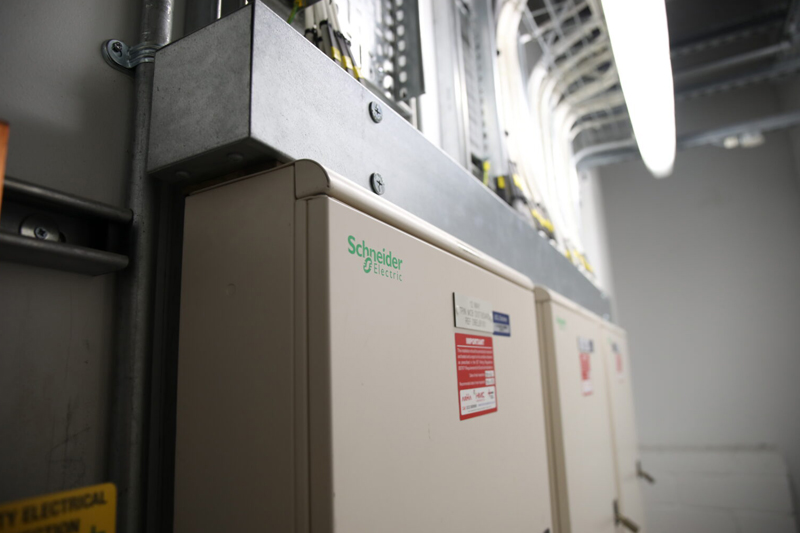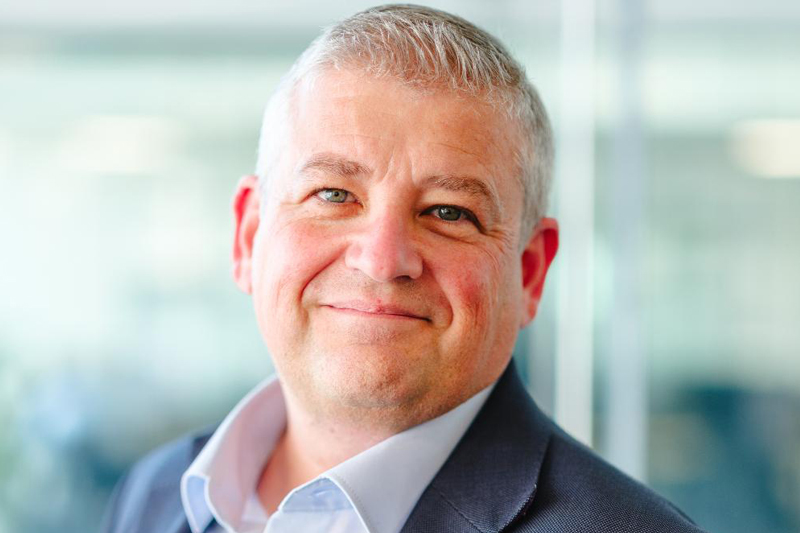David Williams, Schneider Electric’s Vice President, Transactional Business for the UK & Ireland, explains why electrical professionals are the true trailblazers powering the sustainable revolution.
When we look back at our sustainability journey up to now, it is clear that electrification is at its heart. From the wide-scale introduction of electricity 100 years ago to harnessing it to power a sustainable future today, one thing remains a constant – electrical professionals powering change behind the scenes.
In fact, they have always been the true trailblazers. Between contractors, engineers and electricians, they collectively ensure the transition to a more electrified and energy efficient world is as safe, effective and sustainable as possible. With an increase in innovative and sustainable technologies and the growing momentum of renewable energy sources, these key industry players are the impact makers helping us to embrace this new world of opportunities.
From system integration to the rise of electric vehicles (EVs) to dealing with new sources of electricity and connected electrical heating, these technicians face a challenging future. Let’s take a look at the role these trailblazers have played up to now, how their job will evolve going forward, and consider how partnerships and training can power sustainable success.
A century of electrical evolution
Reflecting on the last 100 years, the role of electrical workers is now unrecognisable. As the trailblazers leading the charge into a new world of electrification in the 1920s and 30s, they were front and centre of the world’s technological revolution. In an era where the average person had little to no understanding of electricity, electrical technicians were the noble pioneers learning how to install or repair electrical systems and bring society into a new era. As the experts who brought light to homes, installed the first electrical appliances and ensured that the new technological innovation was safely integrated into everyday life, they were the people making a serious impact on society.
This pioneering spirit meant that early technicians were keen innovators and problem-solvers, working with rudimentary tools and facing challenges that would be unimaginable today. With the concept of electrification so new, the equipment they dealt with was often bulky, complex and dangerous. In the 1950s post-war boom, when electrical appliances became household and business staples, and moving into the computer age of the 1980s and 1990s, technicians had to adapt and evolve. They had to think, and learn, quickly, transitioning from installing basic lighting and power outlets to handling much more complex systems.
These trailblazers laid the groundwork for the modern electrical systems we take for granted today.
Today’s electrical complexities
Now, a new set of challenges is on the horizon as the world becomes increasingly connected and electrified. The role of an electrical practitioner has expanded beyond simple installations and repairs. Modern technicians must now act as installers and system integrators, capable of managing and connecting a wide array of devices and systems in any type of building. There are four key focus areas as we look to the future:
System integration: With the rapid increase in smart equipment and Internet of Things (IoT) devices, specialists need to understand how to integrate various connected appliances and sensors. From lighting systems to smart thermostats to security cameras, professionals must ensure that all devices must work seamlessly together, systems are installed correctly and that communication between these systems is smooth and efficient.
The rise of EVs: As electric vehicles become more popular in the transition toward a sustainable future, electrical professionals are increasingly tasked with installing and upgrading EV charging stations in homes and businesses. This task requires a deep understanding of electrical load management and the ability to ensure that the charging station is safely connected to the building’s electrical system.
Energy efficiency and renewables: With energy efficiency becoming a priority, many homes and businesses are adopting connected systems that allow remote control and optimised energy use. Electrical professionals now play a critical role in installing and maintaining these systems, ensuring they operate safely and efficiently. The shift to sustainable energy sources – like solar panels and heat pumps – requires skilful and safe integration into existing technologies.
Digitalisation: Moving forward we need to make sure our systems are future ready and give us the insights we need to be proactive. Digitalisation and the use of advanced technology solutions, such as our own Acti9 active safety system – powerful tools to navigate modern electrical challenges. With increased visibility into how systems perform, technicians can anticipate, diagnose and address potential issues in real time before they become major issues.
Powering a sustainable future
Electrical professionals remain just as vital to progress today as they were in the early 1900s – but what does that role look like in practice? As more organisations prioritise electrification and sustainability to power a better future, skilled electrical partners are helping drive meaningful progress toward Environmental, Social and Governance (ESG) targets.
At Schneider Electric, we closely monitor and measure our impact across a range of transformative ESG goals – a commitment that has earned us the title of World’s Most Sustainable Corporation for 2025 by Corporate Knights. This recognition marks Schneider Electric as the only company to top the Global 100 ranking twice, having first led the list in 2021. It highlights both our longstanding dedication to sustainability and the significant gains that can be achieved through strong partnerships with skilled electrical professionals.
A key factor in this success has been surpassing our goal of providing access to green, reliable energy for 50 million people, alongside our ongoing upskilling efforts. In an industry defined by rapid technological change and growing sustainability demands, continuous training is essential for electrical professionals to navigate complex systems and emerging technologies. To support this, we’ve trained over 763,000 people in energy management and recently partnered with Enactus, empowering university students from 10 countries to develop entrepreneurial solutions addressing social challenges tied to the energy transition.
Ultimately, a truly sustainable future can only be achieved with the help of electrical professionals. Throughout the past century, they’ve been at the forefront of technological evolution – and that remains the case today. As sustainability challenges evolve, these key players will continue to adapt and innovate, and it’s up to industry partners to provide the tools, training and guidance they need to lead the way.
For more on Schneider Electric and sustainability, click here
Find more industry opinions here





